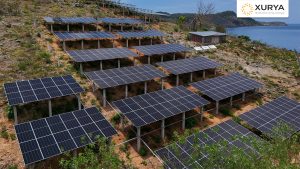Jakarta – The National Energy Council (DEN) said that a crucial factor that has exacerbated Indonesia’s oil production crisis is the decline in investment in the country’s oil and gas sector over the past 10 years.
According to the Ministry of Finance, Indonesia’s oil production until December 2023 will only reach 607 thousand barrels per day (bpd), far below the state budget target of 660 thousand bpd.
DEN Secretary General Djoko Siswanto, in the Energy Corner program, CNBC Indonesia, Tuesday, January 9, said that the allocation of investment in upstream oil and gas had been regulated by the parliament’s budget committee every year, which reaches tens of billions of dollars in the form of cost recovery cooperation contracts. According to him, although funds for exploration are available, further efforts are needed apart from exploration activities to increase production.
“If the SKK Migas (the Special Task Force for Upstream Oil and Gas Business Activities) calculation is outlined in the national energy grand strategy, it can contribute 250,000 barrels per day,” he said, adding that if R/P (reserves-to-production) of approximately two hundred thousand barrels per day (bpd), EOR (enhanced oil recovery) 250 thousand bpd and business-as-usual contributes, then production can reach one million bpd by 2030.
Siswanto said that even though there are thousands of existing wells, they will not be able to increase production because, in reality, only business-as-usual methods are more often implemented.
Observer and practitioner of the upstream oil and gas sector, Tumbur Parlindungan, said that this condition directly impacts oil production, which cannot reach the predetermined target.
“We see that the production cannot be increased again because to increase production, the most important thing is exploration. So if exploration was 10 years ago, maybe production could increase,” he said.
The decline in investment in exploration has occurred since oil prices fell in 2015, accompanied by changes in the fiscal regime and the impact of the COVID-19 pandemic. This has resulted in delays in exploration and, consequently, a decline in production that may continue for the next few years unless there is a major step up in exploration. (Hartatik)















